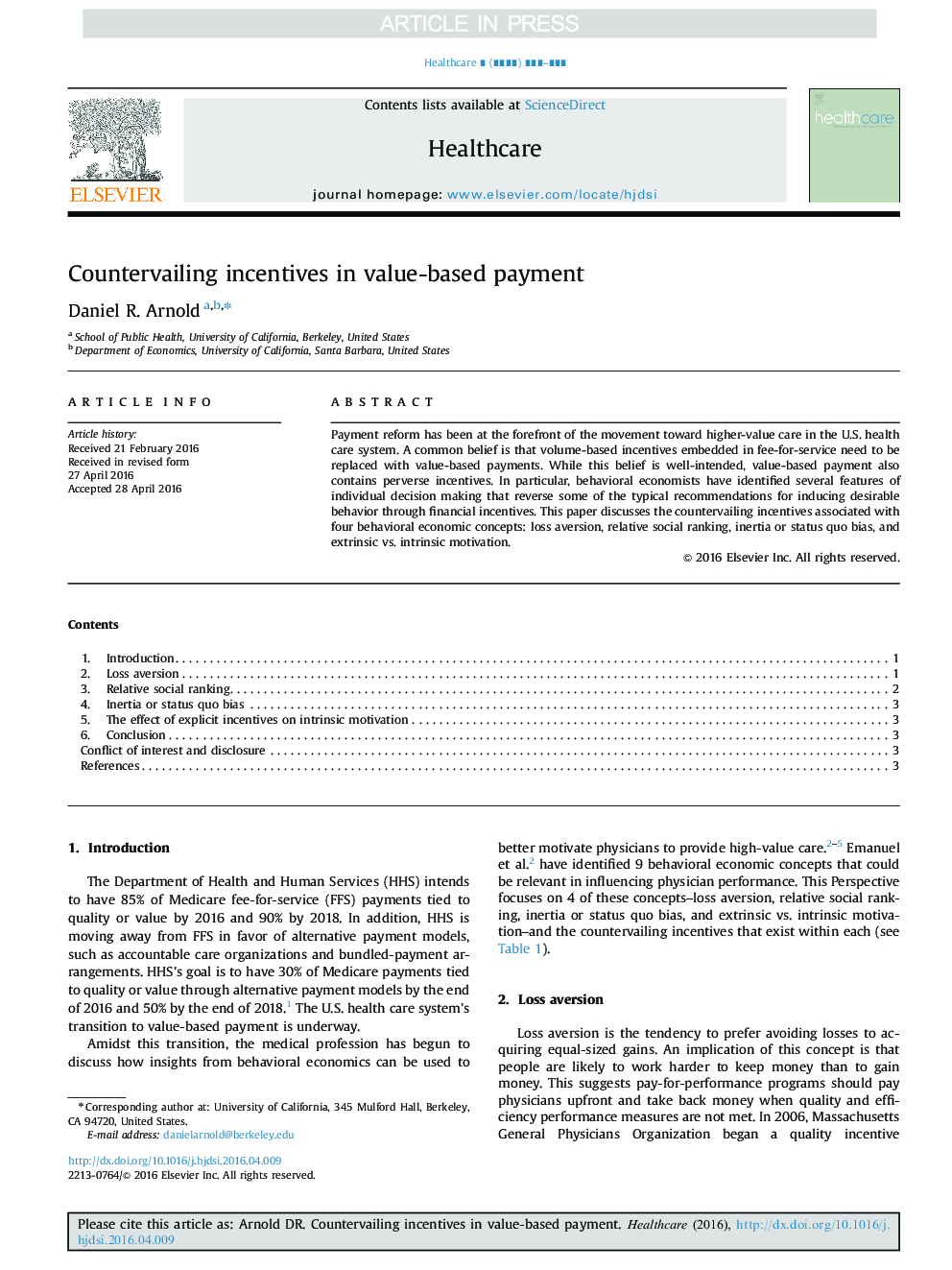| Article ID | Journal | Published Year | Pages | File Type |
|---|---|---|---|---|
| 4966245 | Healthcare | 2017 | 4 Pages |
Abstract
Payment reform has been at the forefront of the movement toward higher-value care in the U.S. health care system. A common belief is that volume-based incentives embedded in fee-for-service need to be replaced with value-based payments. While this belief is well-intended, value-based payment also contains perverse incentives. In particular, behavioral economists have identified several features of individual decision making that reverse some of the typical recommendations for inducing desirable behavior through financial incentives. This paper discusses the countervailing incentives associated with four behavioral economic concepts: loss aversion, relative social ranking, inertia or status quo bias, and extrinsic vs. intrinsic motivation.
Related Topics
Physical Sciences and Engineering
Computer Science
Computer Science Applications
Authors
Daniel R. Arnold,
